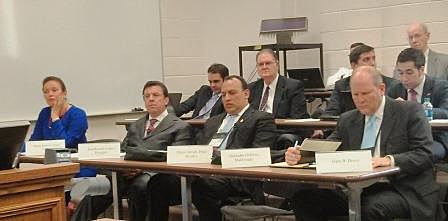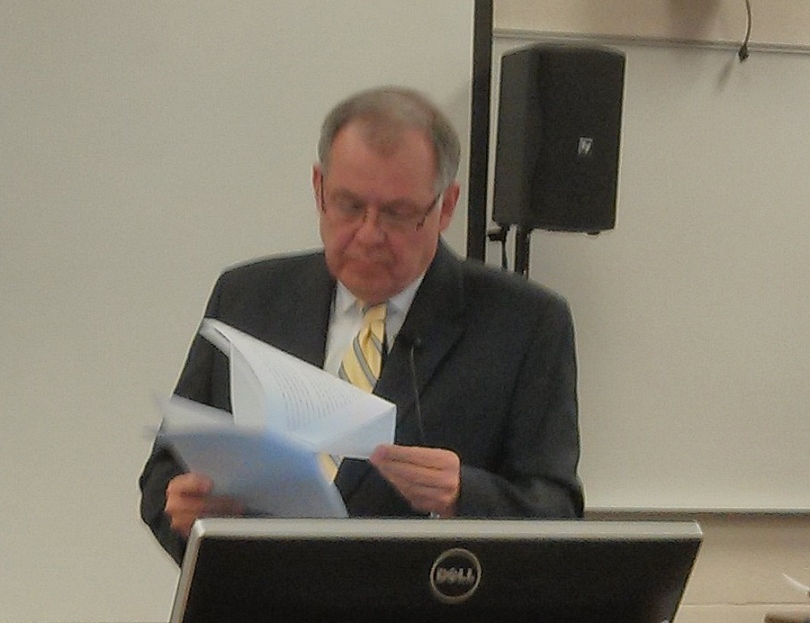





Gaylee Coverston reporting
Moderator: Gary B. Doxey
 The distinguished Attorney General of Columbia, Alejandro Ordoñez Maldonado, opened the session with a discussion of the importance of social and political debate to improve the quality of freedom of religion and conscience. According to Article 19 of Colombia's Constitution, a person does not have to act contrary to their conscience. True freedom must allow for action or inaction in accordance with one's own personal beliefs. Mr Ordoñez concluded with a personal experience dealing with the issue of personal conscience versus social/political pressures and duties.
The distinguished Attorney General of Columbia, Alejandro Ordoñez Maldonado, opened the session with a discussion of the importance of social and political debate to improve the quality of freedom of religion and conscience. According to Article 19 of Colombia's Constitution, a person does not have to act contrary to their conscience. True freedom must allow for action or inaction in accordance with one's own personal beliefs. Mr Ordoñez concluded with a personal experience dealing with the issue of personal conscience versus social/political pressures and duties.
The second presenter, Mário Alfredo Pinel Rosales, a Congressman from the National Congress of the Republic of Honduras, gave an overview of the Constitutional process regarding human rights and freedom of religion. Honduras has opened its country to all denominations, with the intent of offering equal opportunity for religious entities. Actual application still requires effort and tolerance. Mr Rosales believes that, with care, religious freedom and human rights can be achieved as Honduras moves forward in an attitude of respect.
Following Mr Rosales, José Ricardo Lopes Pescador, the General Director of Fideicomiso Fondo National de Fomento Ejidal of the Republic of Mexico, spoke on Constitutional reform in Mexico regarding religious freedom. He presented a historical overview of Mexico's religious freedom and human rights legislation, citing the many changes from Mexico's original separation of church and state in 1857. Presently, the most recent additions to Mexico's Constitution in articles 24 and 130, were finally approved in July of this year. The process was long but finally achieved, giving hope to all nations that improving human right issues is a reality if we move forward with determination.
The concluding speaker for this breakout session was Maria Patricia Ariza Velasco from Colombia. She is the fourth Deputy Attorney of the Council of State of the Office of the Attorney General of Colombia. Dr. Ariza opened her presentation noting that human rights and religious freedom issues in this era began in earnest as a response to the atrocities of World War II. She continued by recognizing the reality of religious violence. In the Western World the violence regarding human rights tends to be insidiously emotional versus physical. Today's holocaust occurs as we force others to disregard their personal identity, by demanding that they act contrary to their consciences. She also alluded to Article 19 of Colombia's Constitution as a step forward in allowing for freedom of conscience. To preserve human dignity, we must allow a person to be who they are in public as well as in private.
